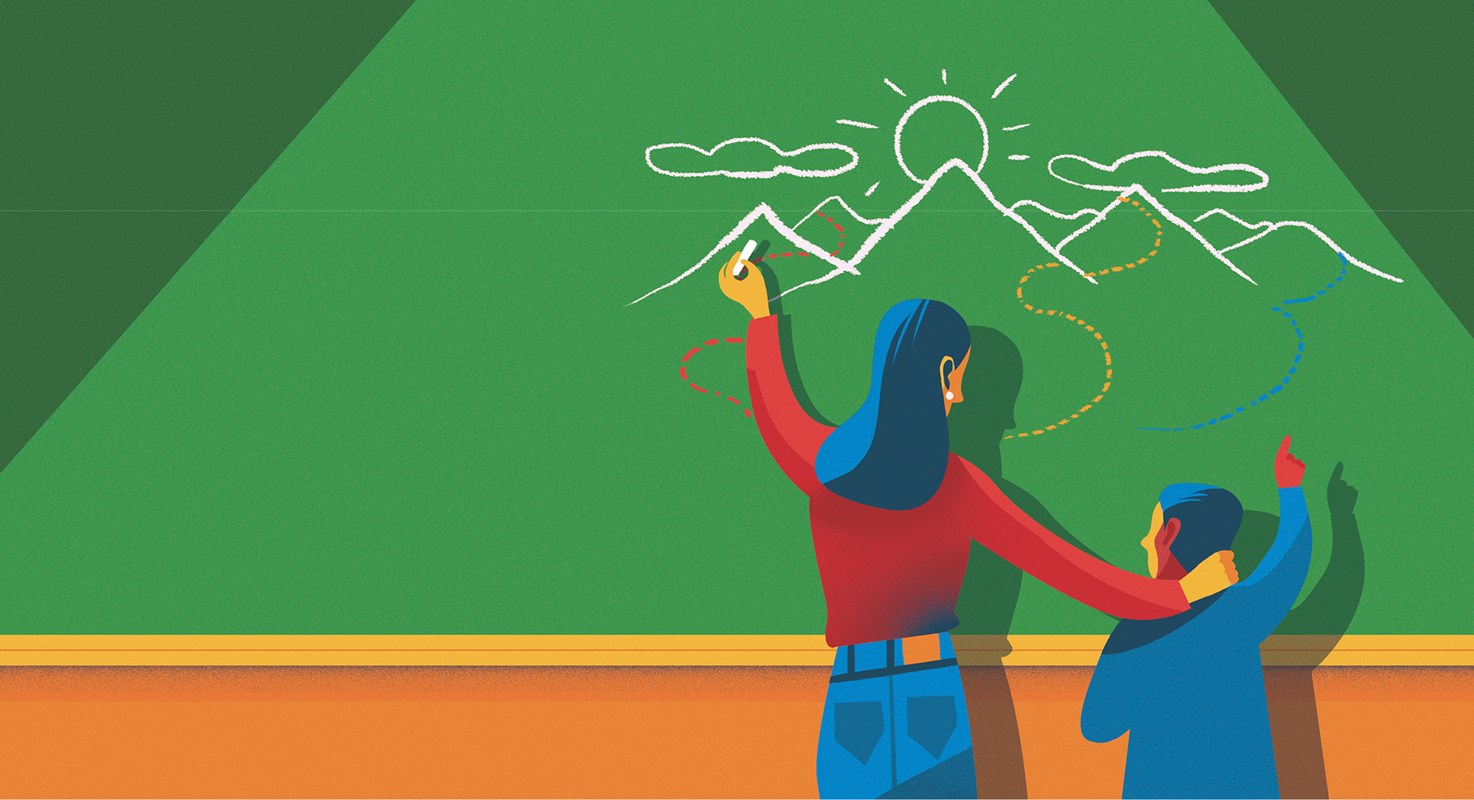Education at the crossroads
By Peter Tabichi

Pep Boatella

Kenyan science teacher and winner of the 2019 Global Teacher Prize, Peter Tabichi, writes that politicians, business, the voluntary sector, NGOs, parents and local communities need to work together and play a role if we are to provide universal education for all by 2030.
There is certainly a mountain to climb if we are going to deliver United Nations Sustainable Development Goal (SDG) 4: providing universal primary and secondary education for all by 2030. Recent studies showed how, in 2017, one in six women aged 20-24 living in low- and middle-income countries had not completed primary school. About 263 million children and young people are out of school, according to the most recent data from the UNESCO Institute for Statistics. This includes 61 million children of primary school age, 60 million of lower secondary school age, and 142 million of upper secondary age, and is equivalent to about a quarter of the population of Europe.
What’s more, we are facing a youth population explosion. In the 47 least developed countries, the youth population is projected to increase by 62 per cent over the next three decades, rising from 207 million in 2019 to 336 million in 2050. Of these increases, the largest — 89 per cent of the total — are expected in sub-Saharan Africa. Parts of the world where poverty is highest, and resources are always the most stretched, seem disproportionately disadvantaged in so many ways.
Teaching in an under-resourced school in rural Kenya, I know first-hand the scale of the challenge we face. About 95 per cent of our students are from very poor families without access to clean water, and with food insecurity a big challenge. Around 30 per cent of my students are either orphans or being raised by single parents. Sadly, indiscipline cases, drug abuse, teenage pregnancies, early dropout, early marriages, and suicide, have all been common in these instances.

“Teachers have never been more important than at this time”
Peter Tabichi
But my experience on the frontline has shown the difference a good education can make, and why we must back teachers if we are to achieve SDG 4.
We have overcome the many disadvantages at my school with our clubs for ‘Talent Nurturing’ and ‘Science’, giving all of our students the chance to explore and develop ideas, which boosts their collaboration, confidence and accomplishment. Our ‘Peace Club’ too has proved very successful in breaking down historic tribal rivalries between our young people and offering models of behaviour and thinking that lead to greater cooperation and collaboration. Our students have gone on to win national and international competitions because we make the time to prioritise their education and their overall well-being.
Since winning the Varkey Foundation Global Teacher Prize 2019, I have spent much of the last year travelling the world meeting educators and policy makers to discuss the big education issues facing us all. I was also appointed as the first ‘Champion for Children in Conflicts and Crisis’ for Education Cannot Wait, the global fund for education in crisis, to champion the cause of 75 million children whose education is disrupted by conflicts and natural disasters.

These experiences have shown me just how vital it is that we all work together over the next 10 years to achieve universal education. Education underpins so many of the challenges faced every day by the poorest and most vulnerable people on the planet: from tackling climate change and the refugee crisis to skilling people to face the realities of work in the future, currently being transformed by automation.
If we are to reach SDG 4 and achieve universal education, we will need to recruit 69 million more teachers globally by 2030. Governments must prioritise education when it comes to setting budgets to recruit and train the teachers we need, and to ensure their classrooms are equipped to meet the needs of the next generation. And governments must listen to teachers on the front lines when it comes to reforming education policies.

Everyone in society has a role to play, however. To ensure more talented people go into teaching, and want to stay in the profession, the whole world must come together to back teachers and to give them the respect they deserve.
Teachers have never been more important than at this time. Only they as professionals and exemplars can equip young people with the necessary skills to fulfil their dreams and our world’s promise. This is bigger than any one government. I believe that — not just in Kenya, but all over the world — politicians, business, the voluntary sector and NGOs, parents and local communities collectively have an important role to play in ensuring we provide all children with the very best education possible.
Only by working together can we find the right solutions between now and 2030 to help our young people be educated in partnership and cooperation together, ensuring they are able to face the future with confidence.








